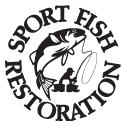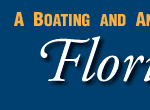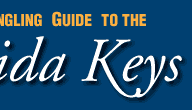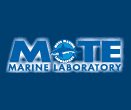CONTACT US:
Florida Fish and Wildlife
Conservation Commission
Fish and Wildlife
Research Institute
100 Eighth Avenue SE
St. Petersburg, Florida 33701
727-896-8626
|
|
|
Mote Marine Laboratory
Tropical Research Laboratory
24244 Overseas Hwy.
Summerland Key, FL 33042
305-745-2729
|
|
|

|
|
This project was funded in part by a grant awarded from Mote Marine Laboratory's Protect Our Reefs Grants Program, which is funded by proceeds from the sale of the Protect Our Reefs specialty license plate. Learn more at .
|

|
|
Additional funding for this project was obtained through the Federal Aid in Sport Fish Restoration Fund.
|
|
|

|
This Web site contains maps showing the Boating and Angling Guides to the Upper Keys, Middle Keys, and Lower Keys; detailed inset maps, and interactive maps allowing users to zoom in or out, as well as navigate around the map. Additional information was added to the site to enhance the user’s experience. Some of the elements include additional fish to the Popular Sport Fish section, links for the various organizations in the Resource Directory, and fishing regulations specific to the Florida Keys. A link is provided at the bottom of each page for users to send comments, questions, or suggestions..
The information provided by this Web site is grouped into the following categories:
|
| BOATING |
| |
Safety and Courtesy – General information about boating safely in the Florida Keys.
Mooring Buoys – Helpful tips for using mooring buoys around the Keys, as well as maps showing mooring buoy locations on the Florida reef tract.
Diving – Information about diving/snorkeling in the Keys, a list of Blue Star dive operators, and the Florida Keys National Marine Sanctuary Shipwreck Trail.
Marinas – A list of Clean Marinas (as designated by the Florida Department of Environmental Protection) found on the Boating and Angling Guides to the Upper Keys, Middle Keys, and Lower Keys. Clean Marinas with pump outs are also highlighted.
Boat Ramps – A list of public access boat ramps and associated facility information in the Florida Keys.
Paddling Trails – Information and links for some canoe and kayak trails in the Florida Keys
|
| FISHING |
| |
Catch and Release: Important tips for releasing fish quickly and with as little harm as possible.
Popular Sport Fish: A list of popular sport fish caught in the Florida Keys, including pictures.
Fishing Regulations: An up-to-date list of fishing regulations (state and federal) specific to the Keys, includes pictures.
Fishing Piers: A list of fishing piers found on the on the Boating and Angling Guides to the Upper Keys, Middle Keys, and Lower Keys.
Artificial Reefs: A list of artificial reefs found on on the Boating and Angling Guides to the Upper Keys, Middle Keys, and Lower Keys.
|
| MAPS |
| |
Interactive: Six interactive maps of the Boating and Angling Guides to the Upper Keys, Middle Keys, and Lower Keys that allows users to zoom in and out and move around the map.
Detailed Maps: Page-sized maps of popular areas in the Keys. These can be downloaded to a computer and printed on any desktop printer.
Marine Zones: Page-sized maps showing boating regulation zones (SPAs, Ecological Reserves, and Research Only) in the Sanctuary.
|
| NATURAL RESOURCES |
| |
Native Habitats: Information text describing the coastal habitats of the Keys including corals, hardbottom, seagrass, and mangroves.
Animals of the Bay: Highlights various animals of the Keys, specifically Key deer, queen conch, and spiny lobster.
|
| MANAGED AREAS |
| |
State Parks and Preserves: Information for, and links to, state parks that provide boating and fishing access.
Aquatic Preserves: Descriptions and lists of aquatic preserves the the Keys.
National Wildlife Refuges: A list of the National Wildlife Refuges in the Lower Keys.
Florida Keys National Marine Sanctuary: Information about the Florida Keys National Marine Sanctuary.
National Parks: Information about the National Parks that border the Florida Keys.
|
Web site designed and produced by Chris Anderson, Fish and Wildlife Research Institute. Project managed by Bruce Ferer, Mote Marine Laboratory. Funding provided by the Mote Marine, Protect Our Reefs license tag funds and the Federal Aid in Sport Fish Restoration Fund. The Sport Fish Restoration Program collects money from taxes on fishing equipment and boat fuel and distributes the funds to projects that improve fishing and boating opportunities. The Florida Fish and Wildlife Conservation Commission and Mote Marine Laboratoryt are not responsible for omissions, misrepresentations, or factual errors. Additional information and editorial review was provided by the Florida Keys National Marine Sanctuary and Florida Keys National Wildlife Refuges.
Maps available through this Web site should not be used for navigation.
All photographs in this Web Site are courtesy of the Florida Fish and Wildlife Conservation Commission, unless otherwise specified.
Copies of the Boating and Angling Guides to the Upper, Middle, and Lower Keys can be obtained from the Fish and Wildlife Research Institute.
|
|
If you are out snorkeling, diving, fishing, paddling, or boating and see anything that may be unusual or out of the ordinary (including lionfish) in the waters around the Keys , please record the location, date, and time, and contact the Marine Ecosystem Event Response and Assessment (MEERA) project. They can be reached by phone (305-395-8730), e-mail, or online.
If you have any questions, comments, or suggestions about this Web site, please e-mail us at Boating_Guides@MyFWC.com.
Would you like to receive notices of changes to this Web site and the Boating and Angling Guides to the Upper, Middle, or Lower Keys? If so, please e-mail us and include SUBSCRIBE-KEYS in the subject line.
|

















